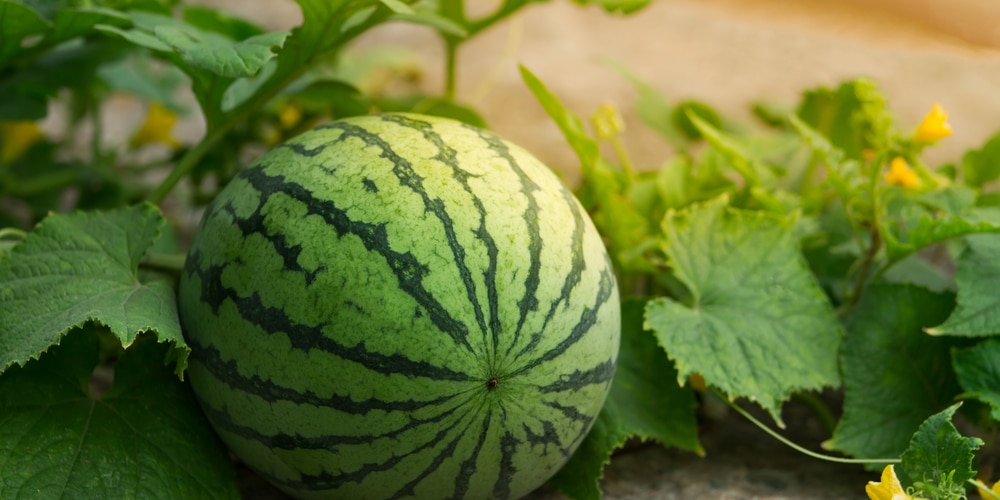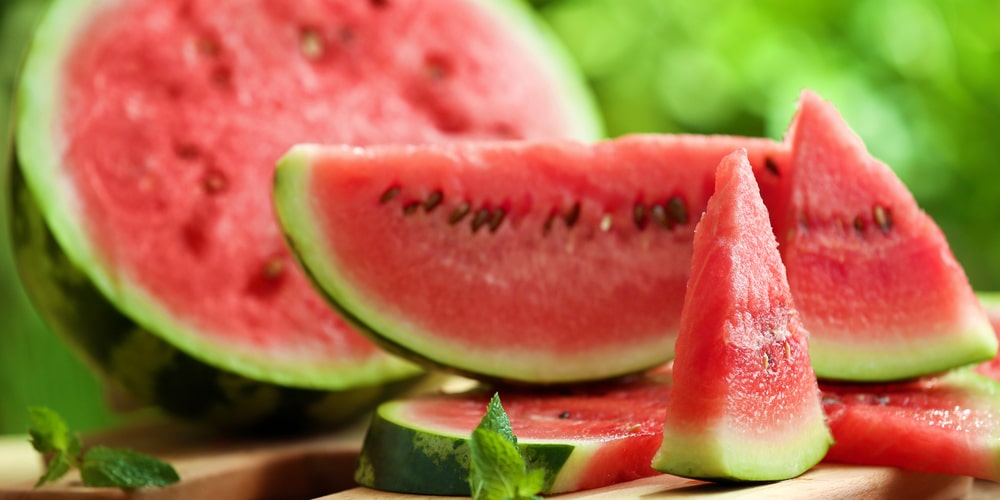Growing watermelons is a fun and rewarding summertime activity. But there comes a time when enough is enough, and you have to let your watermelon patch go fallow. You may be wondering, when to stop watering watermelon?
Generally, watermelons need watering at least twice a week for the first three weeks of their growth.
Once watermelon seeds have sprouted, you can cut back watering every 10-14 days, given that there’s no rainfall during that time. However, if there’s consistent rain, you don’t have to water your watermelons at all.
when to stop watering watermelon
Finding the sweet spot of just the right amount of water can be tricky, but here are five signs that it’s time to stop watering your watermelons:
1) The Leaves are Wilting
One of the most evident signs that your watermelon plant is getting too much water is when the leaves start to wilt. If you see your watermelon leaves wilting, it’s time to cut back on the watering.
Contrary to popular belief, overwatering doesn’t give your plants more water. Instead, it prevents the roots from being able to access the water they need.
Without enough sunlight and air circulation, the leaves can’t photosynthesize and produce the plant’s energy to grow. Over-watering can also lead to fungal growth, further damaging the leaves.
If you see this happening, it’s time to cut back on the amount of water you’re giving the plant. A good rule of thumb is to water deeply but less frequently.
2) The Fruit is Splitting
Another sign that your watermelon plant is getting too much water is when the fruit starts to split. When watermelons receive too much water, they absorb it quickly and swell up. This can cause the fruit to crack or split open, ruining it for consumption.
Since watermelons are mostly water, they’re very susceptible to over-watering. So if you see your fruits splitting, it’s time to cut back on the amount of water you’re giving them.
3) The Vine is Spindly
If you see the vines of your watermelon plant becoming spindly, it’s another sign that the plant is getting too much water. When watermelons receive too much water, they put all their energy into growing the vine rather than producing fruit.
As a result, the vine becomes long and spindly, with fewer leaves and flowers. While this might not seem like a big deal, it can prevent the plant from producing fruit entirely.
4) The Plant Is Growing Too Fast
While it might seem like a good thing at first, rapid growth can actually be a sign of over-watering in watermelon plants. When plants receive too much moisture, they tend to put all their energy into growing leaves and stems instead of fruits. This can result in fewer and smaller fruits overall.
5) Do Not Water 10 Days Before Harvesting
One of the most important things to remember when growing watermelons is to not water them for at least ten days before harvesting. This lets the sugars in the watermelon concentrate, making them sweeter.
If you water the plant too close to harvest, the sugars will be diluted, and the fruits will be less sweet. So if you’re getting close to harvest time, it’s important to cut back on watering and let the plant dry out a bit.
Final Thoughts: When to Stop Watering Watermelon
Watering your watermelon plants is a delicate balancing act. Too much water can lead to problems like wilting leaves, yellowing vines, and splitting fruit. But too little water can also be detrimental to the plant.
The key is to find the sweet spot in-between and give your plants just enough water to thrive.
To help you determine whether your watermelon needs some good watering, bury your finger at least 4 inches deep. Feel the soil to see if it’s dry or moist. If the soil is dry, water the plant until the ground is saturated. If the soil is moist, then hold off on watering for a few days.
Lastly, hold off watering 10 days before you plan to harvest the watermelons. This makes for a sweeter fruit.
Related Article: Watermelon Blossoms: Everything You Need to Know


